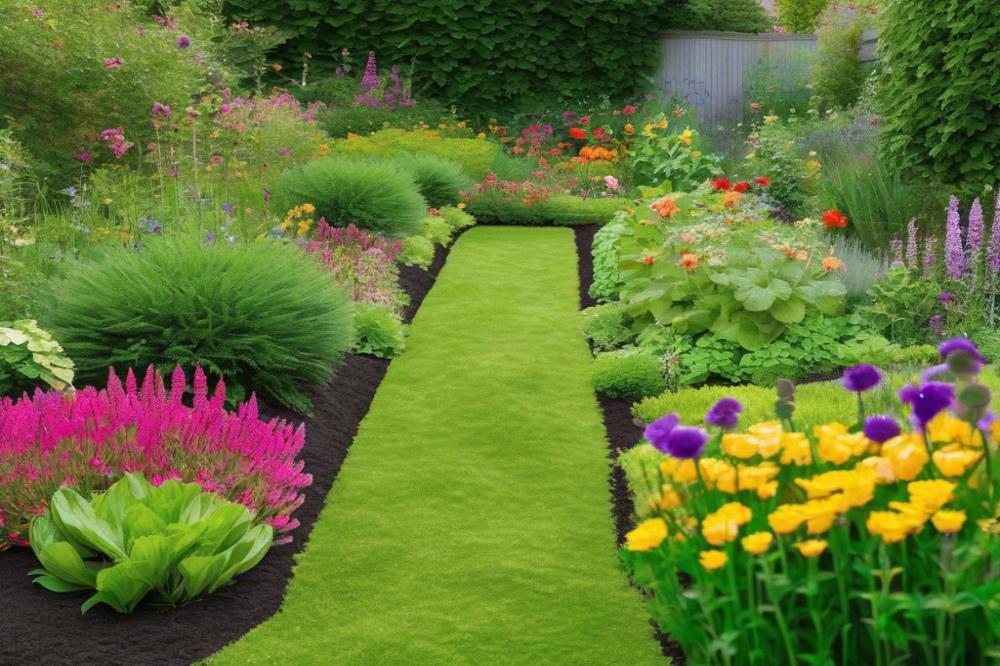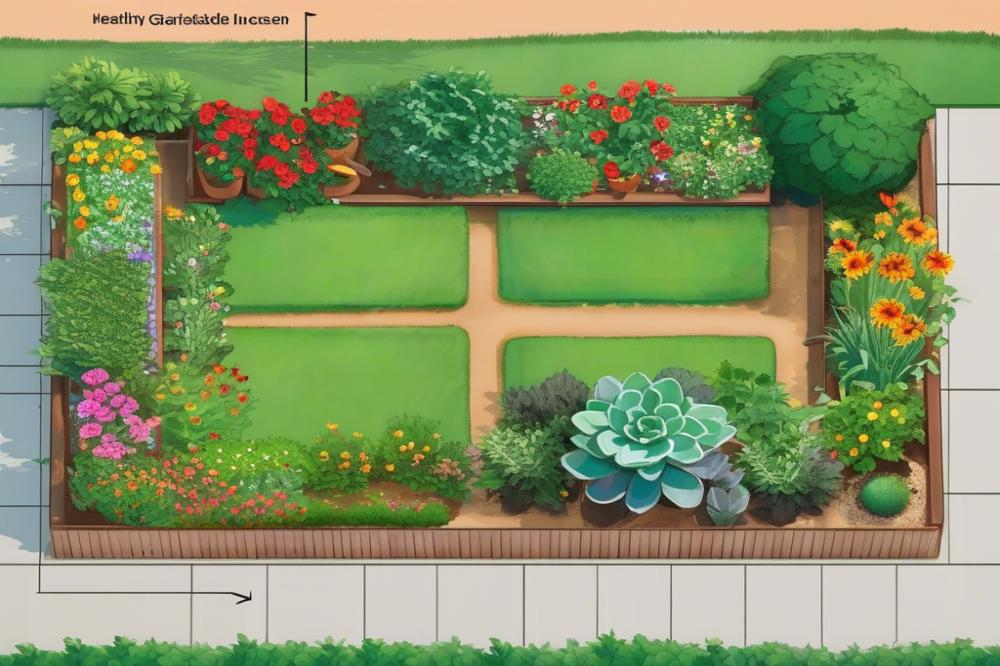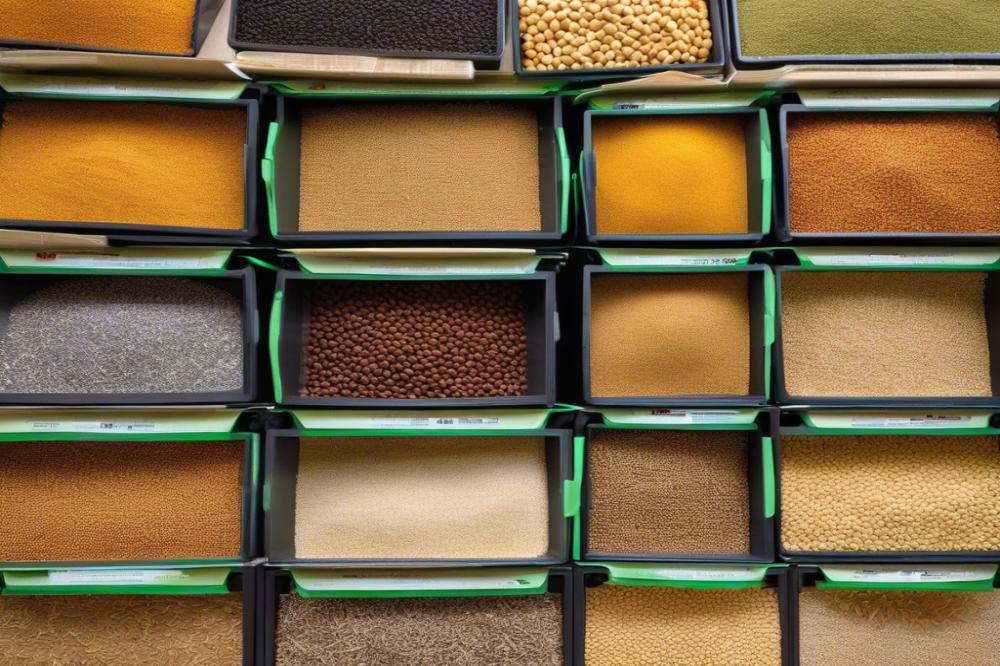Introduction
Rodents in gardens can be a significant issue for any gardener. These small animals often invade gardens, causing damage to plants and ruining your hard work. They may nibble on vegetables, uproot seedlings, or create nests in your carefully maintained soil. The impact is not just visual; it can also affect the health of plants and the overall yield of your garden.
Preventing intrusions from these unwanted visitors is crucial for maintaining a healthy garden. A well-kept garden is not only pleasing to the eye but also supports the broader ecosystem. rodent control is a vital aspect of this maintenance. Many organic gardeners want to grow their produce without using harsh chemicals. Managing these pests requires a thoughtful approach that aligns with organic practices.
Implementing strategies like natural repellents, traps, and physical barriers can be highly effective. These methods also diminish the likelihood of rodents making your garden their home. Some landscaping tips can further aid in creating an environment less inviting to these animals. For example, keeping clean garden beds and managing compost properly reduces hiding spots and food sources.
Another key factor is proper food storage. Unsealed containers or spills can attract rodents quickly. Addressing these issues early can save both time and frustration. Gardeners can foster an ecosystem that balances beauty, productivity, and resilience against common garden pests. Ultimately, a proactive approach will enhance the enjoyment of gardening while safeguarding your plants.
Understanding Rodent Behavior


Pests like rats and mice often invade gardens, causing problems for gardeners. Different rodent species have distinct habits and feeding behaviors. House mice prefer grains, while Norway rats often seek out fruits and vegetables. It’s vital to recognize their preferences. This knowledge can help shape effective rodent control strategies.
These rodents reproduce quickly, leading to potential infestations. A single female mouse can produce up to ten litters a year. Each litter commonly includes several pups. Therefore, it is crucial to monitor for signs of activity. Look for droppings, gnawed plants, or burrows. If these signs appear, a garden may be more vulnerable.
Feeding behaviors reflect their opportunistic nature. Leftover food in the garden attracts them like a magnet. Proper food storage is essential to avoid this issue. Secure all compost materials as well. Open compost piles can lure them in, while clean garden beds offer less cover.
Effective landscaping tips also play a significant role in prevention. Removing debris and maintaining tidy flower beds can deter rodents. Use barriers like fences or mesh to restrict access to your plants. Natural repellents, such as peppermint oil, can be useful, too.
The connection between garden maintenance and rodent invasions is clear. Regularly checking for any signs of these creatures helps in early detection. When they are spotted, use traps and other measures promptly. Identifying rodent activity allows for a proactive approach.
Effective Rodent Control Strategies


In the quest to safeguard gardens from rodents, a mix of methods often delivers the best results. Relying solely on one technique may not be enough. Combining barriers, traps, and natural repellents can create a more resilient defense against these pests.
Implementing proper garden maintenance is essential. First, keep garden beds clean and tidy. Remove debris and excess greenery that can provide shelter for rodents. Regularly check your compost management practices too. Piles can attract unwanted visitors, so turning the compost gives it a fresher aroma while making it less inviting.
Utilizing traps is another effective option. Snap traps and catch-and-release traps are widely available. Position these tools in areas that show signs of rodent activity. They should be checked frequently and used with appropriate bait, such as nuts or seeds.
Consider building physical barriers as well. Fencing made of strong materials can keep rodents out. Installing wire mesh or hardware cloth around the base of your garden beds will also thwart their attempts to tunnel in. Make sure that barriers are buried at least a few inches deep.
Landscaping tips can further enhance your defenses. Designing a layout that reduces hiding spots is wise. Use a mix of plants that don’t encourage rodents. Dense shrubs might create hiding places, while open spaces can deter them.
Natural repellents offer another layer of protection. Plants like mint or lavender are known for their strong scents that rodents dislike. Planting these in strategic areas may help keep them at bay. Additionally, you could use essential oils or homemade sprays around the garden as a deterrent.
Food storage is vital when it comes to organic gardening. Keep pet food, birdseed, and garden supplies in sealed containers. Open bags can attract rodents just as much as fresh produce. All these strategies combined create a holistic approach to rodent control.
By understanding and using these varied techniques, you can keep your garden flourishing while minimizing the risk of rodent invasions.
Implementing Barriers


Creating physical barriers is a key strategy in rodent control. Fencing can be especially effective in keeping these pests away from your garden. However, not all fences work the same. Choose a fence that is at least 2 feet high and buried a foot underground. This prevents rodents from burrowing underneath and getting inside.
Using netting offers another layer of protection. Garden netting can cover plants and keep rodents from munching on tender seedlings. Look for sturdy options that can withstand weather changes. Make sure you secure the edges well to prevent any gaps.
Consider your garden bed designs as well. Elevated garden beds not only improve drainage but can also deter animals. With the soil slightly raised, it strikes a balance between accessibility for gardeners and challenges for rodents. Pairing beds with decorative stones or gravel can further discourage nesting.
Regular maintenance plays a massive role in keeping gardens clear of rodents. Clean garden beds and well-maintained spaces reduce hiding spots. Frequently check for debris, old plants, or piles of compost that might attract unwanted guests. Proper compost management helps too. Closed compost bins deter rodents more than open piles.
Food storage is another crucial factor in rodent prevention. If you harvest produce, store it in secure containers. Avoid leaving food scraps in the garden for prolonged periods. Even garden tools and utensils should be kept tidy. This cleanliness not only contributes to organic gardening but also lowers the attraction factor for little critters.
Employing landscaping tips that include native plants can reduce rodent activity as well. The right plant selection can also attract beneficial predators that keep rodents at bay. Another effective method is using natural repellents to enhance barriers. Scents like peppermint or cayenne pepper have shown efficacy in deterring pests.
Based on these techniques, consider integrating traps for persistent problems. They serve as a last resort when all other methods fail. However, any trapping system should be humane and checked regularly.
Using Natural Repellents


Exploring natural repellents offers a promising approach to keeping rodents at bay. Certain herbs and scents are known to be unappealing to these pests. For instance, mint is a popular choice among gardeners. Its strong aroma can deter various rodents while adding a pleasant fragrance to the garden.
Another effective herb is rosemary. Planting rosemary or using its essential oil can help create a barrier that mice and rats dislike. Additionally, lavender is not just great for attracting pollinators but also for discouraging pests. The scent of lavender is thought to repel rodents effectively.
When applying these natural repellents, placement is key. Consider interplanting these herbs among your vegetables and flowers. This creates an environment that makes it harder for rodents to feel at home. Maintaining clean garden beds will amplify the effects of these repellents. Remove any debris or food sources that might attract unwanted guests.
Another approach involves the use of essential oils. Spraying diluted peppermint oil around garden borders can create a strong scent barrier. Regular applications are important for maintaining effectiveness. Ensure that you rotate different herbs and scents throughout the season. This variation keeps rodents guessing.
Incorporating effective compost management practices is also beneficial. Avoid placing food scraps in exposed areas. Properly managing your compost can minimize attracting these pests. Make sure your compost bin is rodent-proof to avoid any unwanted visitors.
Landscaping tips can enhance the natural defenses of your garden. Creating physical barriers using plants that emit strong odors can help. Though traps and barriers are effective, they can be complemented by natural repellents. A holistic approach to rodent control can lead to better results.
Remember to store food securely. Whether it’s seeds or harvested produce, proper food storage keeps your garden tidy. Combining these strategies helps establish an environment that is less appealing to rodents.
By understanding the scents that deter rodents and applying these natural solutions thoughtfully, you can better protect your organic gardening efforts. Avoid the temptation to rely solely on chemicals. Embrace these natural alternatives as part of your ongoing garden maintenance routine.
Setting Traps Safely
Using traps can be an effective part of rodent control. There are various types suitable for gardens. The choice often depends on your specific needs and gardening style.
Types of Traps
Snap traps are among the most common. They provide quick results but can be risky for pets. If you prefer a more humane approach, consider live traps. These capture rodents without harming them. Once caught, the animals can be released far from your garden. Another option is electronic traps that kill instantly. Each type has its advantages and challenges.
Safety Tips for Setting Traps
Before using traps, think carefully about placement. Position them where you’ve noticed rodent activity. Keep them away from areas frequented by pets or children. Always follow the instructions carefully to avoid accidents. Regularly check your traps to monitor their effectiveness. This helps ensure that you are not leaving traps set for too long.
Monitoring Effectiveness
Tracking which traps catch rodents can improve your strategy. Record the types and locations of traps used. Notice patterns in rodent activity for more efficient management. Combine trap usage with other methods, like natural repellents or barriers, for better results. Keeping your garden clear of debris and maintaining clean garden beds reduces hiding spots for rodents.
Implementing Landscaping Tips
Good landscaping can also help prevent infestations. Planting certain herbs can deter rodents naturally. Mint and lavender are great choices. Additionally, manage your compost properly. Make sure bins are secure and rodent-proof. Food storage is essential, too. Store all garden-related food items in airtight containers. This reduces the chances of attracting unwelcome guests.
Conclusion Avoided
Incorporating traps into your garden maintenance plan creates a balanced approach to rodent control. By combining these strategies, you are taking steps towards a more enjoyable gardening experience.
Landscaping Tips for Prevention
Choosing the right plants is crucial for rodent control. Certain species attract rodents more than others. Opt for plants with less sweet fruit or fewer seeds. Native plants can be highly beneficial as they often require less maintenance and do not provide extravagant shelter for unwanted guests.
Garden layout plays a significant role in how rodents view your space. Creating open areas can deter them, as they typically prefer places that offer cover. Grouping plants together can be helpful, but avoid dense thickets. A thoughtful arrangement reduces hiding spots and makes it harder for rodents to establish homes.
Maintaining a clutter-free environment is essential for keeping your garden uninviting. Regularly clear debris like fallen leaves, branches, and other materials where rodents love to hide. Clean garden beds also play a significant role in discouraging these pests. If there’s no place to nest, they are less likely to linger.
Compost management should not be overlooked. Keep compost bins secure to prevent easy access to food waste. Naturally, it might attract more than beneficial insects if left open. Use bins with tight-fitting lids to keep pests out. Storing food properly is equally crucial. Avoid leaving pet food or bird seed out in the open.
In addition to plant selection, consider using barriers. Fencing can serve as a protective method to limit access. Raised beds may also help in creating distance from ground-dwelling rodents. Implementing traps in targeted areas offers another chance to catch any intruders early.
Natural repellents can be effective too. Some gardeners use peppermint oil or garlic sprays. These solutions might reduce the chance of an invasion. Any action taken contributes to maintaining a healthier, more organized garden. Following these landscaping tips enhances your chance of enjoying your garden without unwanted guests.
Compost Management and Food Storage
Effective compost management is crucial for keeping rodents away from your garden. Start by choosing a well-constructed compost bin. This type of bin should have a tight-fitting lid, which prevents animals from getting inside. A sturdy barrier made of wire or metal can help keep out unwanted visitors as well. Regularly turning the compost pile also speeds up decomposition. It reduces odors that might lure pests.
When managing compost, avoid adding meats, dairy, or greasy food. These items attract rodents more than plant materials. Stick to vegetable scraps, coffee grounds, and yard waste as compost ingredients. Monitoring moisture levels in the pile also helps. Too much moisture can create a smelly environment that might appeal to rodents.
Food storage plays a significant role in rodent control. Use airtight containers for all your grains and seeds. These containers will keep food fresh while deterring pests. Label each container clearly to make access easy during gardening tasks. Additionally, keep food storage areas clean and free from debris.
Cleaning up fallen fruit and vegetables is essential for maintaining garden hygiene. If you let produce rot on the ground, it can attract not only rodents but other pests too. Regular harvesting and immediate removal of bad produce are essential aspects of garden maintenance. Garden beds should remain tidy and clear of food debris.
Consider using natural repellents to create a less inviting space for rodents. Planting herbs like mint or lavender can deter them due to their strong scents. Integrating these plants into your landscape can also enhance your garden’s aesthetics. Alternatively, traps can be a practical solution if rodents are a persistent problem. Place them discreetly to avoid disturbing the overall garden appearance.
Utilizing sturdy barriers such as fencing around the garden perimeter can enhance protection. Choose fencing that extends underground to prevent digging. Combine these strategies with proper landscaping tips for comprehensive pest management. Lay mulch to keep the soil healthy and discourage rodents from entering your garden area.
In the context of organic gardening, maintaining a clean and inviting environment is vital. Regularly check your garden for signs of infestation. Being proactive helps in catching problems before they escalate. A simple chat with fellow gardeners can also provide useful insights on maintaining a rodent-free garden.
Final Thoughts on Rodent Prevention
In summary, taking the right steps can greatly reduce the chances of rodents invading your garden. Start by regularly cleaning up debris and removing any food sources that might attract these pests. Using raised beds can also create a barrier, making it harder for them to access your plants. Employing natural deterrents like peppermint oil or using barriers such as mesh or fencing will further protect your crops.
A combination of these proactive measures can be particularly effective. Garden maintenance should regularly include checking your plants for signs of damage. Clearing away clutter and keeping pathways tidy will discourage nesting. By addressing the problem from multiple angles, you set up a robust defense against unwelcome visitors.
Ultimately, using these strategies not only helps with rodent control but also fosters a healthier environment. Your organic garden can thrive when protected with thoughtful practices. Make the effort today, and enjoy a flourishing garden free from rodent troubles.



